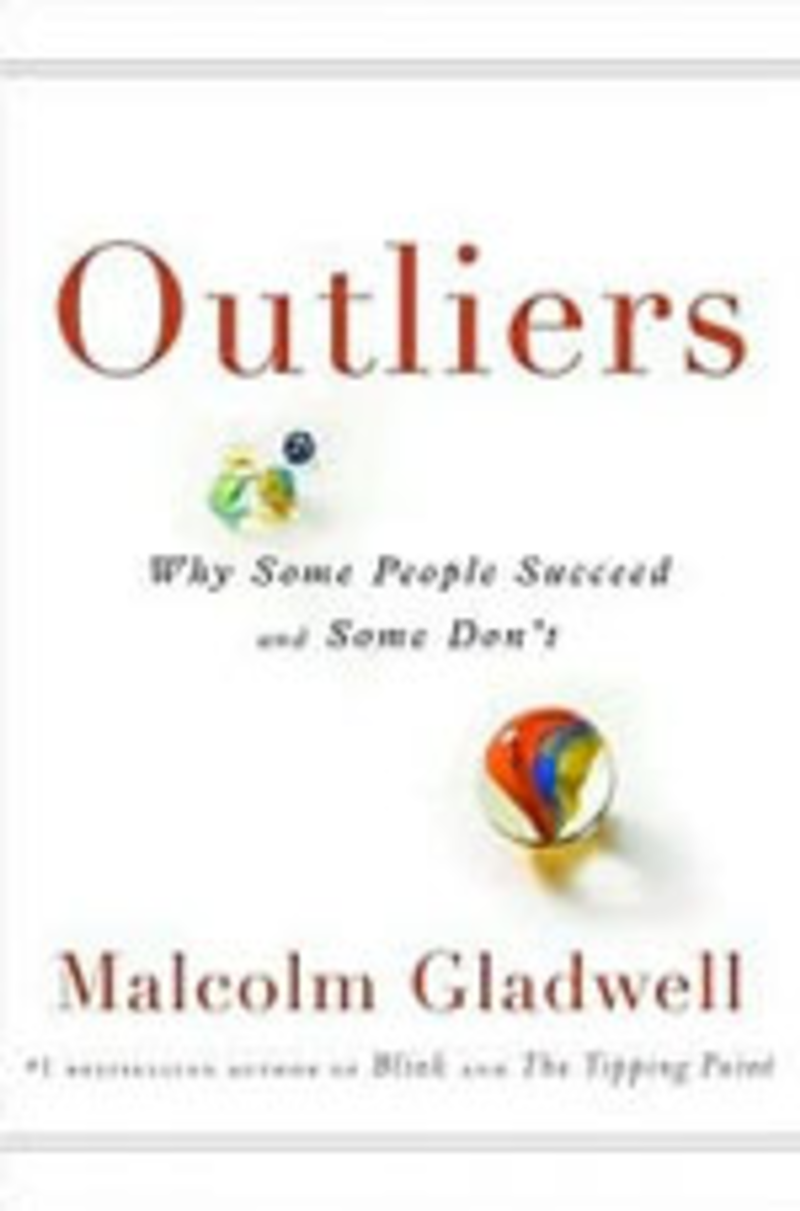Since reading Outliers by Malcolm Gladwell (and reviewing it), the concept of what makes an individual exceptionally successful in a particular area has been heavy on my mind.
In the book, Gladwell mostly argues that exceptional success is the result mostly of factors outside of our control: demographics, genetics, and so on. However, he does point to a few tantalizing clues of things we can control for increasing our own chances at personal success. —-
Practicing constantly Gladwell estimates that, in order to become world class at something, one needs to invest 10,000 hours of practice. That amounts to two hours of practice a day for roughly fifteen years - a pretty tall order, indeed.
Listening and interpersonal communication Being able to pay attention to what others have to say - actually listening and incorporating their statements into your own thoughts - is another big key, as is the ability to communicate with others in a respectful fashion. Doing both of these will help you to naturally build a social network around yourself, which is a big part of the puzzle.
Pushing yourself creatively The more you use creativity in your daily life, the more likely you are to succeed. Putting effort into coming up with unusual or unorthodox solutions almost always pays dividends, even if the end result turns out not to be the best solution.
Adopting a culture of learning and growth The personal aspects of your life - what you do with your spare time, who you associate with - should focus heavily on promoting learning and growth. If you find that you spend much of your spare time idling away the hours, or if your friends engage in activities that don’t help you to grow, you’re going to fall short.
So, how can one take these elements together and use them to improve our career standing? I’d argue that the best way to do all of these things is to find an intellectually stimulating hobby, preferably one that intersects with your professional life in some useful way. Here are some examples of hobbies that pull in all of these elements and can also interact well with your chosen profession.
Attending lectures If you live near a university or live in a large city, there’s usually an abundance of lectures open to the public on all sorts of topics. Attend these and pay careful attention, trying to understand what the speaker is saying. Try to draw your own conclusions, and follow up on your own with additional reading. Participate in the questions and answers. Keep your eyes open for regular attendees and introduce yourself to them in an attempt to build friendships.
Joining a book club A book club not only encourages you to use your spare time to read, but during the meetings, it also gives you an opportunity to push your understanding of what you read, come up with creative explanations and ideas, and build relationships with people doing the same things.
Programming computers I have several friends who spend quite a few spare hours each week involved in open source software projects. Not only does this force them to address programming problems in a different situation than their professional lives, it also pushes their creativity and forces them to communicate complex ideas. Virtually all of them have improved in some fashion because of their involvement.
Learning a musical instrument Playing music requires creativity, focus, and a lot of practice, plus it provides many social opportunities when you’ve mastered it. Try selecting an instrument that’s convenient to play publicly, like a guitar.
Volunteering for leadership Leadership positions in volunteer groups force you to communicate with others, listen to what they have to say, and be creative with solutions to the problems presented to you. Many volunteer groups can fill your hours quite easily, giving you plenty of practice as well.
Mastering a simple task If all else fails, focus on mastering one simple task with your spare time. I have a close friend who devoted many, many hours to mastering the Rubik’s Cube. To some of you, this may seem like a waste of time, but he’s gotten a ton of usefulness out of it. Not only did it teach him how to focus his mind on a complex problem before him, he’s also earned money from putting information online about Rubik’s Cube solving as well as using his ability to quickly solve a cube as an icebreaker and a nifty party trick, enabling him to build relationships.
What’s the take-home message here? Choosing the right hobby can synergize very well with your career choices and point you right down the path to great success. You have a choice to make: do I want to spend my spare time idling, or do I want to spend it doing something fun that, at the same time, teaches me valuable lessons I can utilize in every aspect of my life? The choice is up to you.
TRENT HAMM blogs about personal finance at www.thesimpledollar.com. If you have a question that you would like answered, ask in the commments on his blog.






